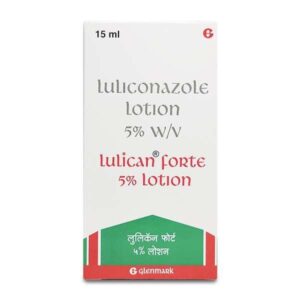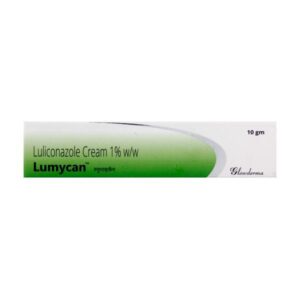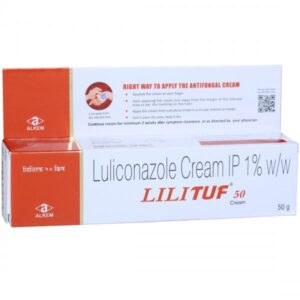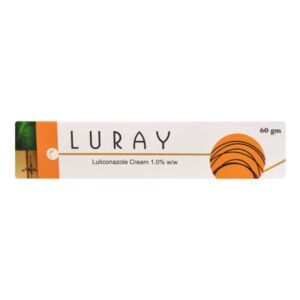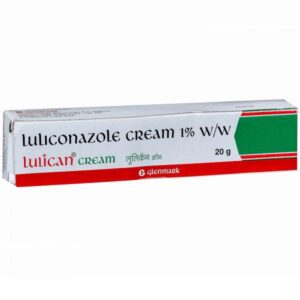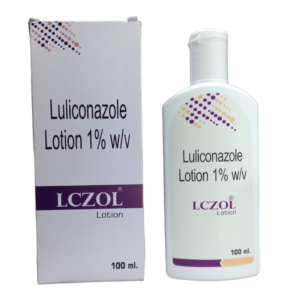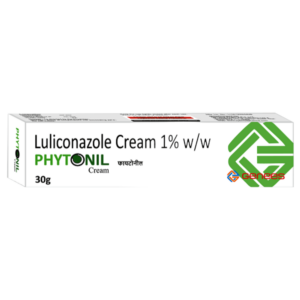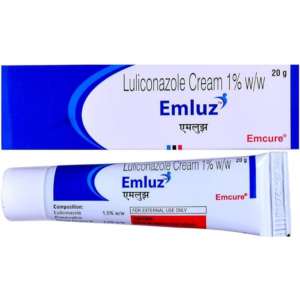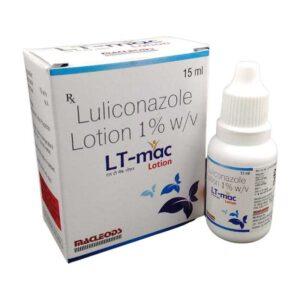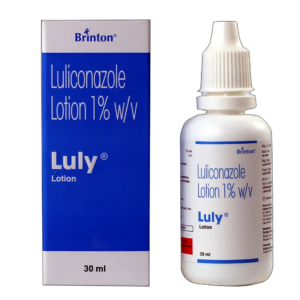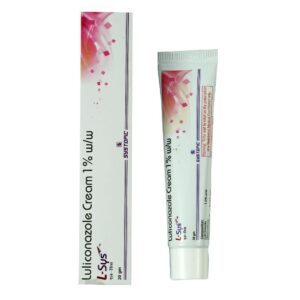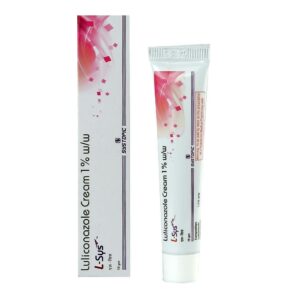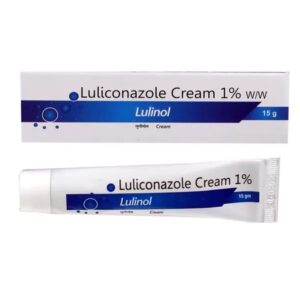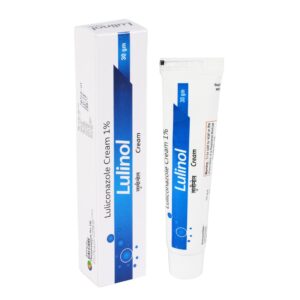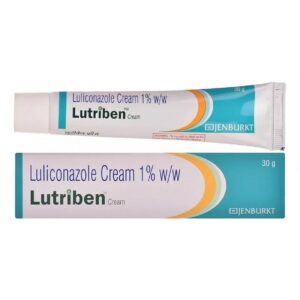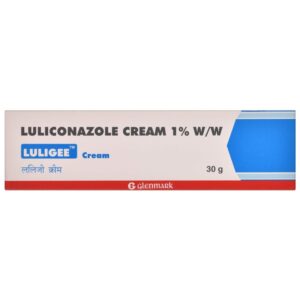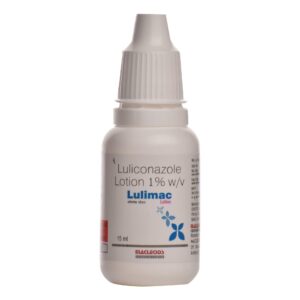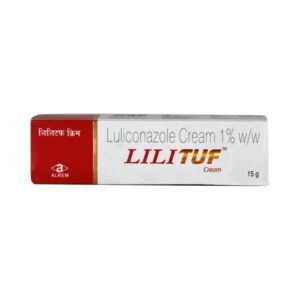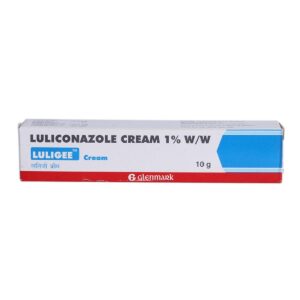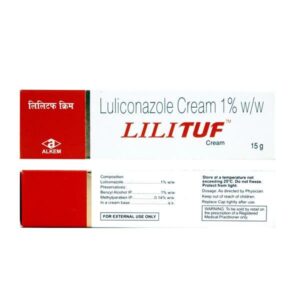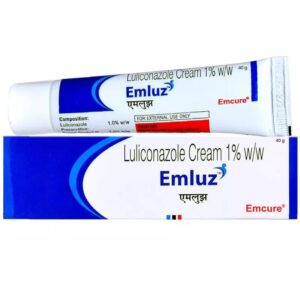LULICONAZOLE
LULICONAZOLE: Luliconazole is an antifungal medication used for the treatment of superficial fungal infections of the skin, including athlete’s foot (tinea pedis), jock itch (tinea cruris), and ringworm (tinea corporis).
Its mechanism of action involves the inhibition of an enzyme called lanosterol demethylase, which is essential for the biosynthesis of ergosterol in fungal cell membranes. By inhibiting this enzyme, luliconazole disrupts the integrity and function of the fungal cell membrane, leading to the death of the fungus.
Luliconazole is available as a cream and is usually applied topically to the affected area once daily for a specified duration, as directed by a healthcare professional. The duration of treatment can range from 1 to 4 weeks, depending on the severity of the infection and the specific instructions provided.
Common side effects of luliconazole may include skin irritation, burning, itching, redness, or dryness at the application site. These side effects are usually mild and transient. However, if any severe or persistent side effects occur, it is important to seek medical attention.
As with any medication, it is essential to follow the prescribed dosage and duration of treatment to ensure its effectiveness. It is also important to avoid contact with eyes, nose, mouth, or other mucous membranes while using luliconazole unless specifically directed by a healthcare professional.

